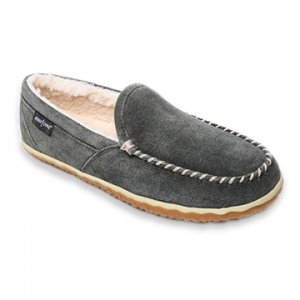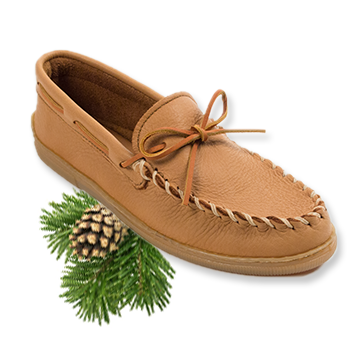Minnetonka Moccasin Company’s Commitment to the Native American Community

The Minnetonka Moccasin Company was founded in 1946 in Minneapolis, Minnesota. The company was named after Lake Minnetonka, which is close in proximity to Minneapolis. In its beginning days Minnetonka was a small business that created handmade souvenirs for nearby roadside gift shops. As families started traveling the open roads more after World War II, people started to discover Minnetonka’s handmade moccasins, and they became the company’s most popular item.
The company would eventually shift their focus to producing mainly these traditional Native American moccasins. It was a family-owned company early on, and it remains that way today. . . The only problem is that the company was founded by Polish immigrants and not Native Americans.
Dictionary.com defines cultural appropriation as “the adoption, usually without acknowledgment, of cultural identity markers from subcultures or minority communities into mainstream culture by people with a relatively privileged status.” It was at some point in the early 2000’s that the owners of Minnetonka started to grapple with this idea of cultural appropriation and started to reexamine how, why, and under what direction their company was operating.
In 2020, under the direction of CEO Jori Miller Sherer, Minnetonka first publicly apologized “for having benefited from selling Native-inspired designs without directly honoring Native culture or communities.” They also made it known that they were actively recruiting Native Americans to work at the company and that they were reexamining all aspects of their brand. Then, a year later, on Monday, October 11, 2021, which is the day that citizens in the state of Minnesota celebrate Indigenous People’s Day, Minnetonka issued a statement further publicly apologizing to Native communities for benefiting from the sale of their product which was not made by Native people. They also made the conscious decision to change their logo as well as some of the designs on their products.
Over the past decade, several companies and brands have been called out for benefiting from many forms of cultural appropriation. What is unique and makes Minnetonka’s statement seem legitimate and heartfelt is that this statement, apology, and the action that the brand took did not happen after any sort of backlash- it was actually the idea of the owners to be proactive in their attempt to reconcile what they saw as taking advantage of a community that was not their own. For many years, the company had been donating a portion of their profits to Native causes throughout Minnesota, but they decided that giving back was not enough. Starting in 2021, they took a more active and public stance in supporting these communities. They started hiring Native American artists to design their moccasins and help shape their company such as Adrienne Benjamin, a Minnesotan, Anishinaabe, and member of the Mille Lacs Band of Ojibwe who is now the company’s reconciliation advisor; and Lucie Skjefte, a citizen of the Red Lake Nation Anishinaabeg who is a Minneapolis-based designer, mentor and educator who is the designer behind Minnetonka’s first ever Indigenous beaded moccasin collaboration.
Benjamin was excited to work with Minnetonka, “I sensed a genuine commitment to positive change” she stated. “They had really done their homework as far as understanding and acknowledging the wrong and the appropriation. I think that they knew for a long time that things needed to get better, and they just weren’t sure what a first step was.”
Grandpa Shorter’s Gifts has been proud to carry Minnetonka moccasins since 1946. In fact, they were the first retail store to do so. And, the Shorters were pleased to hear that the company had issued a statement condemning their own cultural appropriation as well as the steps they were taking to reconcile their past wrongdoings.
You can read their complete commitment to the Native American community by clicking here.
Here is a list of all the organizations that Minnetonka helps support.





